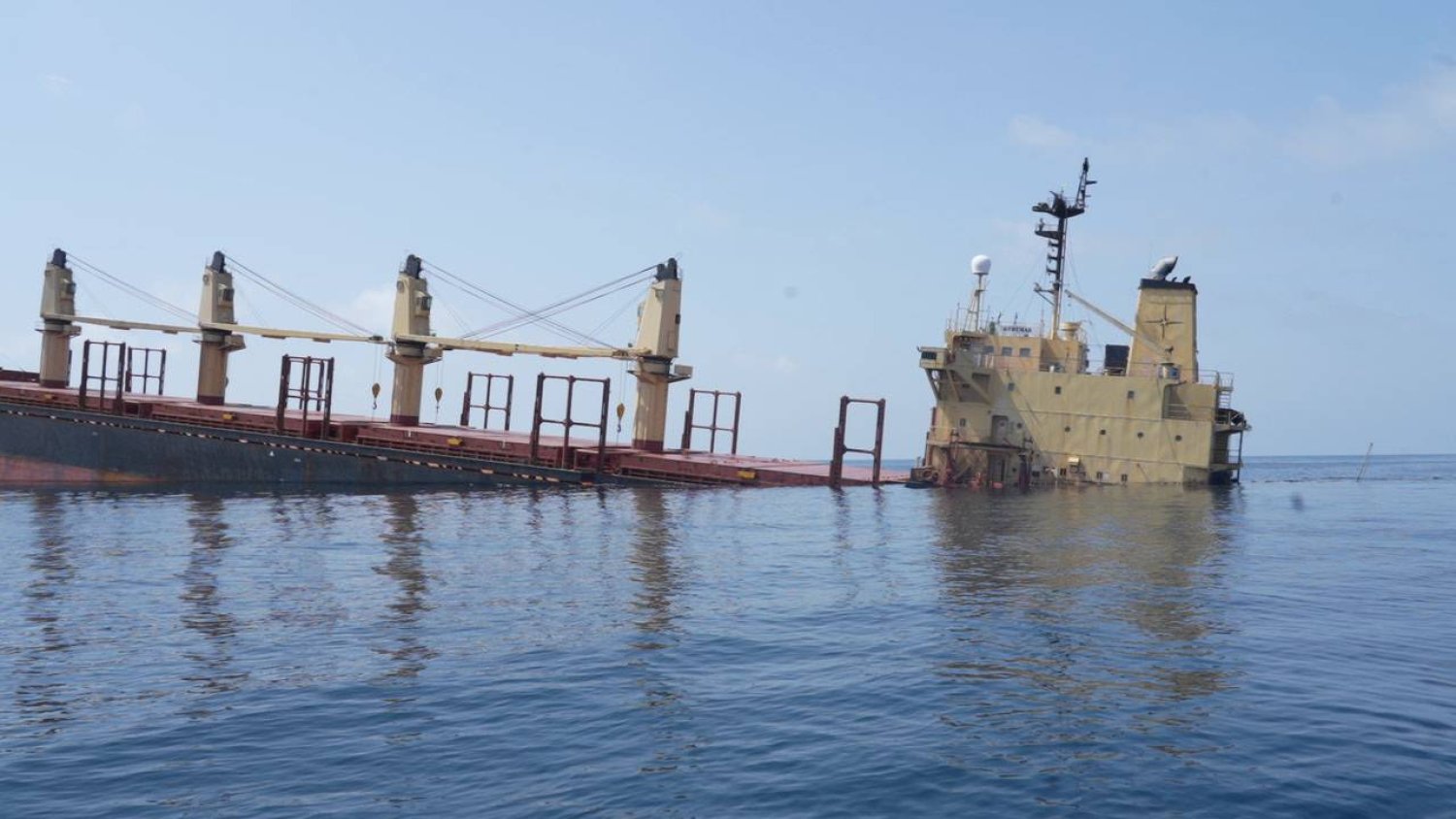


A British-registered cargo ship called Rubymar has sunk in the Gulf of Aden two weeks after being attacked by Houthis in Yemen. The ship was carrying over 41,000 tons of fertilizer at the time of the attack. The vessel had been taking in water and all 24 crew members were rescued ten days prior to the sinking. The sinking of the Rubymar is the first ship to have been sunk by the Houthis since they began targeting vessels in the Red Sea. The sinking poses an environmental catastrophe as the ship was carrying ammonium nitrate fertilizer. The prime minister of Yemen's government called it an unprecedented environmental disaster [8c99619f].
The attacks by the Houthis on commercial shipping have prompted many shipping companies to stop using the waterway. The US and the UK have carried out attacks on Houthi targets in response. The sinking of the Rubymar comes after the US Central Command carried out a self-defense strike against a Houthi surface-to-air missile that was about to be launched from Yemen. The missile posed an imminent threat to US aircraft [8c99619f].
The sinking of the Rubymar cargo ship adds to the escalating attacks on commercial shipping by the Houthis in the Red Sea. The United Kingdom Maritime Trade Operations agency reported two separate incidents, including an attack on a ship near Yemen's port of Mokha and the sinking of another vessel. These attacks have forced shipping firms to divert vessels to longer and more expensive routes, disrupting global trade and increasing costs [ac8416f3].
The ongoing attacks on commercial shipping by the Houthis have significant implications for global trade and the environment. The attacks have disrupted vital trade routes in the Red Sea, causing shipping firms to incur additional costs and delays. The sinking of the Rubymar cargo ship further highlights the potential for an environmental catastrophe in the Red Sea. It is crucial for international efforts to address the situation and ensure the safety of commercial shipping and the protection of the marine environment [ac8416f3].
The conflict in Yemen between the internationally recognized government based in Aden and the Houthi rebels controlling much of the north and other major centers continues to escalate. The US and the UK's involvement in the conflict through strikes against the Houthis reflects the international community's concern over the Houthi attacks on commercial shipping and the need to protect vital trade routes in the Red Sea [03e3f7d0].
In related news, the Royal Navy destroyer HMS Diamond has returned to Portsmouth after six months in the Red Sea and Gulf of Aden, where it helped protect shipping from attacks by Yemen's Houthi rebels. The warship shot down nine drones and a Houthi missile during its deployment, sailing nearly 44,000 miles and spending 151 days at sea. HMS Diamond operated in the region in December and January, coming under fire from Houthi forces on three separate occasions. It returned in March, taking over protection duties from frigate HMS Richmond. The ship used its Sea Viper missiles to shoot down seven drones aimed at merchant vessels by the Houthis on January 9. In April, HMS Diamond shot down a missile launched by the Houthi group targeting a merchant vessel in the Gulf of Aden. The crew members expressed their pride in their work and excitement to return home to their families. The destroyer has been deployed for 10 months and has been involved in other activities, including seizing 2.4 tonnes of drugs in the Indian Ocean [de282a6f].